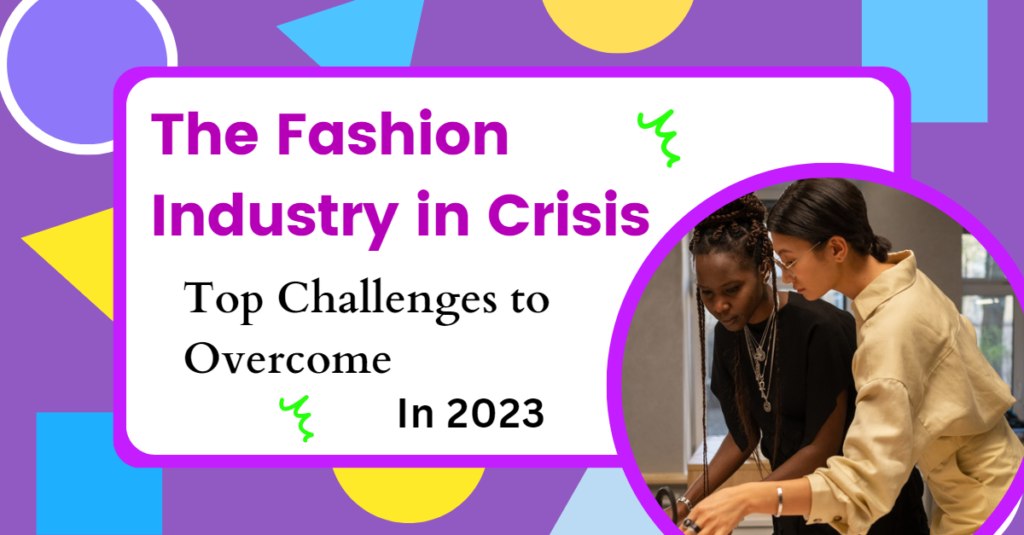What Education is Needed to Be a Fashion Consultant?
Introduction
The world of fashion is a constantly evolving tapestry of trends, styles, and personal expression. Within this vibrant industry, fashion consultants play a vital role in guiding individuals, brands, and events toward sartorial success. However, to excel in this dynamic field, a comprehensive education is essential. Beyond a mere passion for fashion, a deep understanding of design, textiles, communication, and business is required. This article takes you on a journey through the educational pathways and skillsets necessary to become a successful fashion consultant.
Foundation: Building Blocks of Fashion Knowledge
At the heart of fashion consulting lies a foundation of knowledge that spans history, aesthetics, and materials. To embark on this exciting career path, an aspiring fashion consultant must delve into the annals of fashion history, analyzing past trends and movements that have shaped the industry. This historical perspective provides invaluable insight into the cyclical nature of fashion and the ability to predict and interpret future trends.
Understanding design principles and aesthetics is equally pivotal. Color theory, balance, proportion, and harmony are the cornerstones of creating visually appealing and harmonious ensembles. These principles guide fashion consultants in advising clients on flattering color palettes, coordinating outfits, and achieving the desired visual impact.
Furthermore, a strong grasp of textiles and materials is crucial. Different fabrics possess distinct characteristics, ranging from texture and drape to durability and sustainability. Armed with this knowledge, fashion consultants can recommend appropriate fabrics based on individual preferences, occasion, and ethical considerations.
Educational Pathways: Forging Your Expertise
The journey toward becoming a proficient fashion consultant encompasses various educational avenues. Formal education, such as a degree in fashion design, fashion merchandising, or a related field, provides a structured curriculum that covers an array of essential topics. These programs often offer courses in fashion history, design principles, textiles, and business aspects of the industry.
For those seeking a more flexible and accessible approach, online courses and workshops cater to diverse learning styles. These digital resources provide the opportunity to delve into specific areas of interest, from personal styling to fashion marketing. Engaging with fashion literature, blogs, and industry publications further enhances your understanding of the ever-evolving fashion landscape.
However, education extends beyond the classroom. Internships and practical experiences offer hands-on insights into the day-to-day operations of fashion consulting. Working alongside established consultants or within fashion brands allows aspiring consultants to witness client interactions, develop problem-solving skills, and navigate real-world challenges.
Specialized Expertise: Tailoring Your Skills
Fashion consulting encompasses a spectrum of specialized areas, each requiring a unique skillset. Personal styling and wardrobe consultation involve analyzing body types, understanding individual preferences, and creating cohesive and versatile wardrobes. This demands a keen eye for detail, excellent communication, and the ability to translate a client’s personality into their clothing choices.
For those inclined toward event management, fashion event consulting is a thrilling avenue. Coordinating runway shows, exhibitions, and fashion events demands organizational prowess, creativity, and the ability to orchestrate a seamless spectacle that highlights designers’ creations.
Another specialized domain is brand consulting and fashion marketing. Crafting a brand identity, developing marketing strategies, and leveraging social media platforms necessitate a fusion of creativity and business acumen. This area requires an understanding of consumer behavior, the ability to forecast trends, and a knack for strategic positioning within the competitive fashion landscape.
Essential Skills: Beyond the Wardrobe
While a strong fashion foundation is vital, essential skills beyond style and aesthetics set exceptional fashion consultants apart. Effective communication and interpersonal skills are paramount. Active listening, empathy, and the ability to establish rapport with clients foster trust and ensure that consultant-client collaborations are both successful and satisfying.
Trend forecasting and research further elevate a fashion consultant’s expertise. Staying ahead of industry trends, understanding consumer preferences, and predicting future fashion directions empower consultants to provide timely and relevant guidance to clients.
Business acumen and professionalism are integral aspects of a successful fashion consulting career. Financial literacy, pricing strategies, negotiation skills, and contract management are indispensable for establishing a sustainable and profitable consultancy.
Adaptation and Lifelong Learning: Staying Ahead of the Curve
The fashion industry is a realm of perpetual change, with trends and technologies continually reshaping the landscape. To remain relevant and competitive, fashion consultants must embrace lifelong learning. Attending workshops, seminars, and conferences allows consultants to stay updated on the latest industry developments, learn from industry leaders, and network with fellow professionals.
Incorporating technology into your skillset is also imperative. Utilizing fashion software, virtual styling platforms, and e-commerce tools enables consultants to engage clients in innovative ways and expand their reach on a global scale.
Conclusion
Becoming a fashion consultant is not just about following the latest trends; it’s about understanding the nuances of design, textiles, communication, and business. A robust education equips aspiring consultants with the tools needed to excel in this multifaceted field. Whether through formal education, self-directed learning, practical experience, or a combination of these approaches, a dedicated fashion consultant continually evolves and adapts to the ever-changing world of fashion.
From curating personalized wardrobes to orchestrating fashion spectacles, fashion consultants serve as navigators through the seas of style. By developing a deep understanding of the industry, honing essential skills, and embracing lifelong learning, you can embark on a rewarding journey that blends creativity, expertise, and the business of fashion. As you step into the realm of fashion consulting, remember that your education is not just a stepping stone; it’s the thread that weaves your unique story in the fabric of this captivating industry.

My name is Rohit Vagh and I’m a content writer specializing in fashion and lifestyle. I have three years of experience in this field and have written various articles. My writing style is creative and engaging, and I strive to create content that resonates with my readers. I have a deep passion for fashion and am constantly researching the latest trends and styles to make sure my readers are up to date. I’m excited to continue my career in blogging, and I’m always looking for new opportunities in the fashion and lifestyle space.





